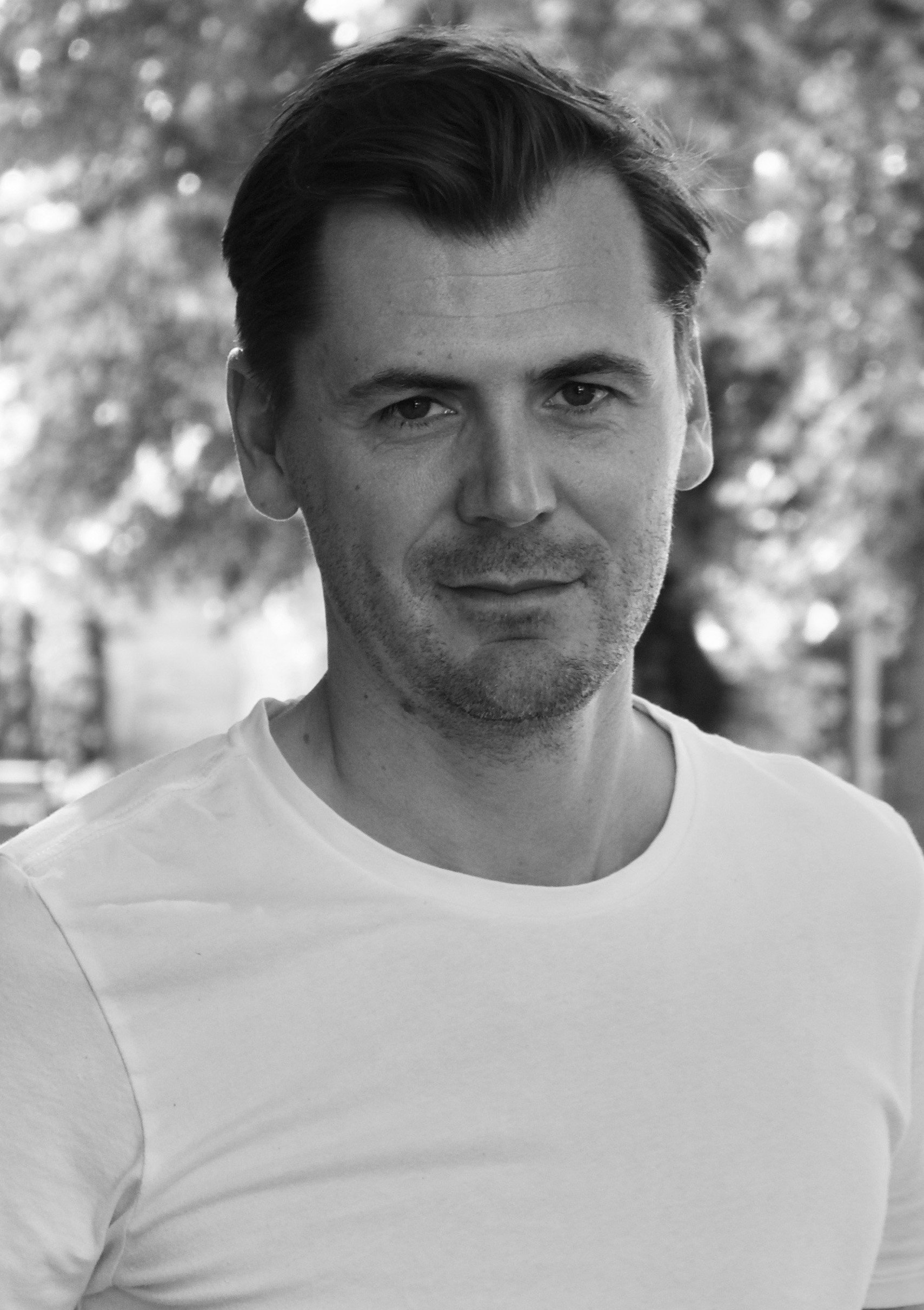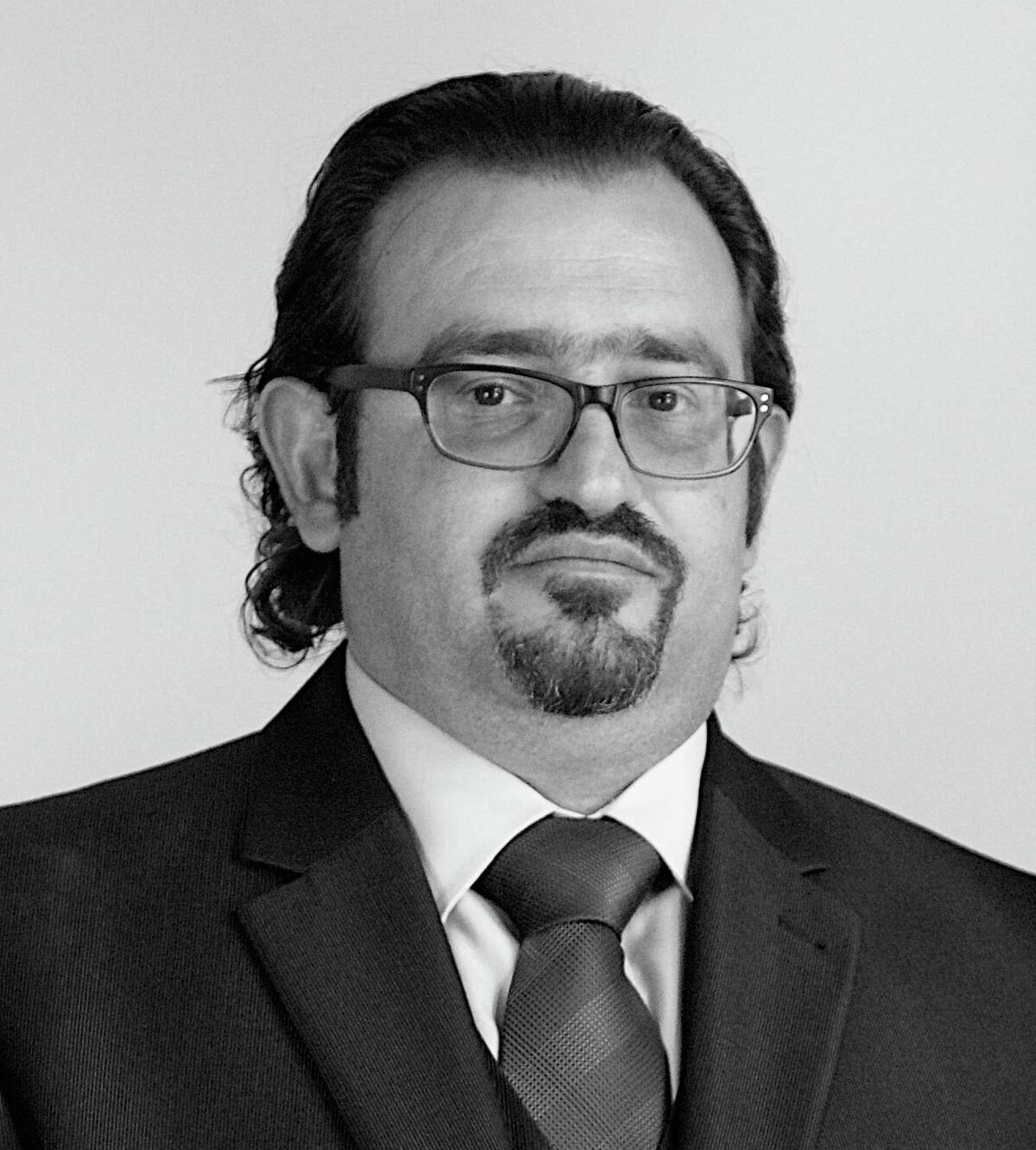Get to know our associates, board members, fellows and experts. ↓
Our Associates
Moritz Behrendt
Daniel Gerlach
Christian Meier
Marcel Mettelsiefen
-
Moritz Behrendt is a German broadcast and print journalist. His work has featured in major German-language newspapers such as Süddeutsche Zeitung and Neue Zürcher Zeitung, and since 2006 he can be heard on Deutschlandfunk and Deutschlandradio Kultur. Before becoming a journalist, he studied history and journalism in Hamburg, Dakar and Beirut. Moritz is particularly interested in how collective and personal memory shape the way societies in the Middle East and in Africa envision the future. With this in mind, in 2013 he helped launch the interdisciplinary project Muwajahat al-Madi (Confronted Past) which focused on life in Egypt and Tunisia after the revolutions of 2011.
-
Daniel Gerlach is the Director General of Candid Foundation gGmbH and Editor-in-Chief of zenith Magazine. He holds degrees (Magister Artium, Licence) in History and Middle Eastern Studies from the University of Hamburg and Paris IV-Sorbonne. In addition to his work at Candid, he hosts a documentary television series on Middle Eastern history and culture. He is a frequent expert guest on international news broadcasters and has delivered briefings and presentations at various institutions, including King's College, Princeton University, the Iraqi Parliament, and the European External Action Service. In 2019, he was a Poynter Fellow at Yale University. Daniel oversees Candid’s dialogue and mediation efforts, where he integrates applied research, journalism, and innovative project work.
-
Inna Rudolf is a research fellow at the International Centre for the Study of Radicalisation, King’s College, London. In 2019 she was a visiting researcher at the Institute of Regional and International Studies (IRIS) at the American University of Iraq. She previously served as a representative of the BMW Foundation Herbert Quandt throughout the Middle East and North Africa. In 2017 she headed the research department of the Tunisian think tank Maghreb Economic Forum. Inna specialises in conflict resolution, international security and the hybridisation of security sectors. Her current research focuses on popular mobilisation tactics, security sector reform and Islamist non-state actors in Iraq, in particular the relationship between the Iraqi state, militias and paramilitary groups.
-
Christian H. Meier is a German journalist. In 2016 he became a political editor of the German Frankfurter Allgemeine Zeitung focusing on content from the Middle East. He has also worked at Süddeutsche Zeitung, Deutsche Presse-Agentur and ARD. As well as pursuing research on cultural integration at the Cluster of Excellence in Konstanz, he has studied Islamic studies and history in Munich, Hamburg, Cairo and Tunis. Christian specialises in the development of Islamic thought, contemporary Egypt and Christian communities in the Middle East. Since 2021 Christian serves as the newspaper’s foreign correspondent covering Israel, Palestine and the Horn of Africa region
-
Marcel Mettelsiefen is a photojournalist and documentary filmmaker. Having interrupted his medical studies to extensively cover Afghanistan, Iraq and Haiti, his work has most recently focused on Syria. His reports from the country have featured on ARD, ZDF, Channel 4, CNN, Al Jazeera and Canal+. His film, The Agony of Aleppo’s Children, was awarded TV News Story of the Year by the London Foreign Press Association in 2013. Marcel received the Hanns-Joachim-Friedrichs-Preis for outstanding journalism and the Cinema for Peace Award in 2014, as well as two International Emmy Awards and prizes from the British Academy of Film and Television Arts (BAFTA). In 2017, Marcel's Syria documentary Watani was nominated for the Academy Awards (Oscars) in the category documentary short.
-
A political scientist by training, Leo Wigger specializes in regional affairs of South and Central Asia (including the South Caucasus). He is a regular contributor to zenith magazine and previously worked as a trainee speechwriter for the president of the European Parliament. He is a Raisina Young Leader 2023 by the Observer Research Foundation (New-Delhi) and ZEIT-Stiftung and an Mercator Foundation Fellow on EU-South Asia relations. In 2022, Leo co-authored the book "Katar 2022, so eine WM gab es noch nie" a primer on the politics surrounding the Football World Cup in Qatar.
Dr. Inna Rudolf
Leo Wigger
Our Team
Anne Bauer
Pascal Bernhard
Robert Chatterjee
Lara Farag
Valeska Heldt
Sherin Kulitz
Oliver Müser
Dr. Naseef Naeem
Meryem-Lyn Oral
Mey Seifan
-
In her academic and journalistic work, Anne Bauer focuses on the MENA region, where she has spent most of her professional and academic life. Having worked as a researcher for a variety of German and international organizations, she specializes in issues of displacement, migration, conflict transformation, and mediation. Among others, her past work has addressed the Syrian war and its ramifications for neighboring countries, the Palestinian cause in the Arab world, and the multifaceted crises affecting Lebanon.
-
Pascal Bernhard is a Swiss journalist and analyst for political affairs in the MENA region. After having studied Philosophy and Islamic Studies in Zurich, he completed a traineeship at the magazine zenith, and wrote numerous pieces and interviews about geopolitics, cultural heritage and religion. In his studies, he focusses on the Golf countries and the power-dynamics of conflicts such as Israel-Palestine, Yemen and Libya. He also admires medieval Islamic history and theology and the game of chess.
-
Robert Chatterjee has studied Middle East Studies and History at the Freie Universität Berlin. He has been working at zenith since 2009 and is the Magazine's Deputy Editor-in-chief since 2016. As a project manager for the Candid Foundation, he was in charge of projects like Candid Media & Science and KatarTalks, amongst others.
-
Lara Farag works as a Project Officer at Candid. She holds a master’s degree in Political Science and International Law and has previously worked in the context of the MENA region. She joined the Candid Foundation in 2024 and previously worked at the Berlin office of the humanitarian organization Doctors of the World. Her expertise includes politics and human rights in the MENA region, with a focus on Syria and Iraq. She is a professional German-Arabic interpreter.
-
Valeska Heldt is a German lawyer by training, currently working as a Political Officer at the Candid Foundation. She previously was based in Beirut, Lebanon, working on rule of law issues in the MENA region. She holds an LL.M. in International Legal Studies from Georgetown University (2018). Her expertise relates to the fields of international criminal, humanitarian and human rights law, and she participated in legal and investigative work related to the Rwandan Genocide as well as national criminal proceedings against German ISIS returnees from Syria and Iraq.
-
Sherin Kulitz is a political scientist with an academic focus on the MENA region, where she spent a lot of time during her childhood as well as during her academic and professional career.
She works as a Project Associate at the Candid Foundation and also contributes to zenith magazine. Her work focuses on conflict transformation, peacebuilding, forced migration and refugees, identity issues and the strengthening of civil society - with a particular interest in Syria and the Israeli-Palestinian conflict. She studied political science at the University of Vienna and was active in the fields of public relations and humanitarian engagement before joining the Candid Foundation.
-
Oliver Müser is a political scientist and filmmaker specializing in the intersection of media and civil society. He has worked on economic reform and reconstruction in Ukraine, media development in Turkey, and the implementation of Voting Advice Applications for elections in Armenia, Georgia, and Kyrgyzstan. At the Candid Foundation, he created and directed the South Caucasus web series Dolma Diaries and is currently developing a follow-up film. Oliver holds degrees in political science, economics, and international relations from the University of Hamburg and the University of Cambridge.
-
Dr. Naseef Naeem is a German-Syrian constitutional scholar and legal advisor specializing in the Middle East. His work focuses on state-building, federalism, and legal transitions in conflict and post-conflict settings such as Syria, Iraq, and Yemen. Until early 2018, he headed the peacebuilding program of the Deutsche Gesellschaft für Internationale Zusammenarbeit (GIZ) in Yemen. As an expert on power-sharing, constitutional reform, and sectarian systems, he advises international organizations, think tanks, and government institutions. Dr. Naeem is also a sought-after media commentator on political and legal developments in the Middle East.
-
Meryem-Lyn Oral is the Media and Communication Officer at Candid Foundation. After receiving her master's degree in International Conflict Studies from the War Studies Department at King’s College London in 2024, she began working for zenith magazine and the Candid Foundation. Academically, she focuses on the nuanced impacts of culture, identity, and emotion on political issues, with a particular interest in the effects of transnationalism within diasporic communities in Germany. She has a keen eye for aesthetics and creates numerous visual outputs for Candid’s projects.
-
Mey Seifan is a cultural manager, curator, and diversity expert with many years of experience in developing, leading, and implementing projects at the intersection of art, political education, and social change – in Germany, the SWANA region, and internationally.
She has designed and led numerous programs – including at the Goethe-Institut Damascus, for the Tanween Collective which she founded, as well as for organizations such as Etijahat, Goethe in Exile, and the Candid Foundation. Her work includes youth projects, cultural policy initiatives, women's empowerment, and interdisciplinary art and education formats.
In addition to her role as a project manager, she volunteers as the managing director of the feminist association NESWA e.V., and is a member of the BIPoC Federal Network of Cultural Policy Experts and the Syrian Women’s Political Movement (الحركة السياسية النسوية السورية). She was also a board member of LAFT Berlin for several years and a diversity agent for the German Dance Association (Dachverband Tanz Deutschland).
Her projects focus on participatory formats and the inclusion of diverse perspectives. As a jury member, she has contributed to international programs and awards such as Etijahat, Afaq, ACT4Hope, and most recently, the Federal Theater Prize 2024.
Mey Seifan combines artistic practice with project work and political engagement – working at the intersections of culture, education, and society.
Our Advisory Board
Prof. Dr. Dr. Ayad Al-Ani
Heinz M. Buhofer
Christian Peter Hanelt
Prof. Dr. Gilles Kepel
Prof. Dr. Verena Metze-Mangold
Yasmin Ouberri
Prof. Dr. Udo Steinbach (†2025)
-
Professor Ayad al-Ani is the Professor for Change Management and Consulting at the Einstein Center Digital Future (ECDF). He is a professor extraordinary at the School of Public Leadership, Stellenbosch University South Africa. Professor al-Ani has over 20 years of experience in business consultancy and has served as president of the ESCP Business School, Berlin, where he also taught. His research focuses organisational change, as well as transformations in the fields of society, economics and education.
-
Heinz M. Buhofer is a Swiss-based entrepreneur. He holds a master’s degree in economics from University of St. Gallen. He currently serves as Director of METALL Zug Group and as the Chairman of the Board at Metall Zug AG. The Candid Advisory Board has benefitted greatly from Buhofer’s entrepreneurial spirit since it was founded.
-
Christian-Peter Hanelt is a German political scientist specialising in the Middle East. He is currently a senior expert for Europe and the Middle East at the Bertelsmann Stiftung. Between 1991 and 1994 he worked for the German television channel Sat.1 where he covered the aftermath of the Gulf War. In his role at the Bertelsmann Stiftung, Hanelt has supported the strengthening of EU-Tunisian relations following the 2010-11 revolution. His areas of expertise include the Euro-Mediterranean partnership, the Israeli-Arab conflict and EU-Gulf relations.
-
Professor Gilles Kepel is a French political scientist specialising in the Arab world. He is the author of several books on the contemporary Middle East and Muslim communities in Europe, the latest of which, Chaos, was published in Germany in 2019. He is currently a professor at the Université Paris Sciences et Lettres (PSL) and as director of the Middle East and Mediterranean Chair at PSL, based at Ecole Normale Supérieure.
-
Professor Verena Metze-Mangold is a German intercultural communication expert and political scientist. She currently teaches political communication at Berlin International University of Applied Sciences. She previously served as president of the German UNESCO Commission, communications director of the public German broadcaster Hessischer Rundfunk and as the director the Protestant Media Academy. Professor Metze-Mangold specialises on the topics of freedom of press and information, media and network policy, as well as international law, multilateralism and the WTO.
-
Yasmin Ouberri is an independent consultant specialising in international project development and project management. Her work focuses on supporting cultural and civil society actors within changing societies, especially in the Arabic-speaking world, to strengthen inclusive civic engagement, facilitate knowledge exchange, and build sustainable capacity in the field of financial literacy. Yasmin previously served as the Candid Foundation's Network Manager from 2019 - 2020.
-
Professor Udo Steinbach passed away on August 2nd 2025. He was a distinguished German Middle East specialist. He headed the MENA Study Centre at the Maecenata Foundation and previously served as director of the German Orient Institute Hamburg as well as head of the Department Near and Middle East of the Foundation for Science and Politics (SWP). He also helped to establish the Centre for Near and Middle Eastern Studies at the University Marburg and co-founded as a shareholder the HUMBOLDT-VIADRINA Governance Platform.
Our fellows and experts
This page is under construction























